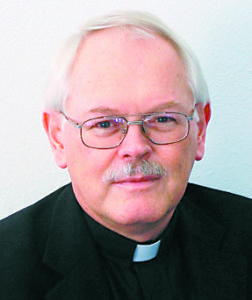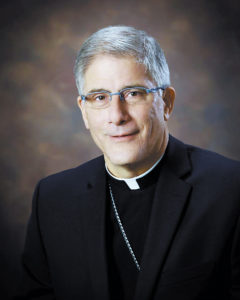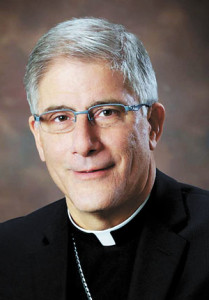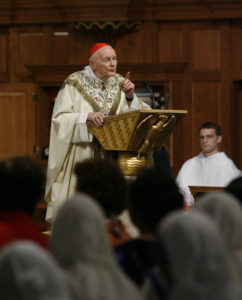
Father Ron Rolheiser, OMI
IN EXILE
By Father Ron Rolheiser, OMI
Recently, reading Commonweal magazine, I was struck by this line by Jerry Ryan, a Little Brother of Jesus: “I have lost contact with so many people who meant a lot to me at different stages of my life, people I loved dearly and really cared for and who had given me so much and made me what I am.”
That’s so true for me and, I suspect, for most of us. People enter our lives, friendships develop, and then some of those friends disappear from our lives. Sometimes we move away, sometimes they move away, sometimes things change and we drift apart or sometimes the affective bonds that held us together disintegrate and they, and we, move on. To the degree that we’re sensitive, there’s always some pain and guilt in this. It’s not an unhealthy thing to feel the loneliness of that loss, nor is it unhealthy to feel that somehow we’ve failed and been less than attentive.
Indeed sometimes we have been less than faithful, but mostly the blame for that (to the extent that some applies) lies inside our inculpable inadequacy. Only God is adequate. Only God has a heart big enough to be attentive to everyone personally and intimately at the same time. Only God never moves away or grows tired. And only God has the strength to forever be faithful. We cannot not be inadequate.
I struggle mightily with that inadequacy. Being a missionary, given the work I do, and given the quirks of my personality, I find myself perennially overwhelmed by my inadequacy in the area of staying close to family and friends, including very dear friends. The task isn’t easy.
First, I come from a very large family which through the generations has expanded into a virtual tribe. It could be a fulltime job just staying in touch with family. Next, I’ve been ministering for more than 40 years and during that time have lived inside various Oblate houses with almost 200 different people. Community is family and, again, it would be a fulltime task just staying in meaningful touch with them all. Then, during my years of doing graduate work, I had the privileged opportunity to develop long-lasting friendships with a number of classmates from different parts of the world. Finally, during all those years of ministry, I’ve met hundreds of students in classrooms and thousands of people doing workshops and retreats. Most of those encounters were temporary and casual, but through the years a good number of meaningful friendships developed there as well. And, while all this was happening, I’ve lived and worked in four different countries and made friends in each of those places.
Then today there’s the further struggle to stay in touch with all the contacts that one necessarily has to deal with on social media.
How does one keep meaningful contact with everyone? How does one not betray friends by simple neglect?
Even as I’m deeply thankful to have so rich a treasury of family and friends, not infrequently I’m overwhelmed with the task of staying in meaningful contact with them and at those times I feel some guilt about forever being out of touch with so many people I was once close to. Sometimes friends whom I have been out of touch with remind me, and not always delicately, of my neglect of our friendship. But as the years go by and the problem grows larger rather than smaller, I am making more peace with my inadequacy and guilt – if not always with some of my neglected friends.
What helps is to remind myself constantly of what a great grace it is to have so large a family and to have such a large number of friends. There are few things for which to be more grateful. Next, I do try to stay in meaningful touch with them to the extent that time, energy, and distance allow. Most importantly, though, given my inadequacy, I try to meet my family and friends at a place where time, energy, and distance are eclipsed by an immediate, intimate presence. There’s one place where we’re not inadequate, where we can be at more places than one at the same time and where we can love countless people individually and intimately, namely, inside the Body of Christ.
Scripture tells us that, as believers, we form together a body that, as much as any living body, is a true living organism, with all parts affecting all other parts. Inside that body we’re present to each other, not fully consciously of course, but deeply, truly, actually. And to the extent that we’re living our lives faithfully and sharing honest friendship and fellowship with those who are immediately around us, we’re not only healthy enzymes helping bring health to the body, we’re also present to each other, affectively, in a way that touches us at the deepest level of our souls There is a place where we are not neglecting each other.
(Oblate Father Ron Rolheiser, theologian, teacher and award-winning author, is President of the Oblate School of Theology in San Antonio, TX.)



